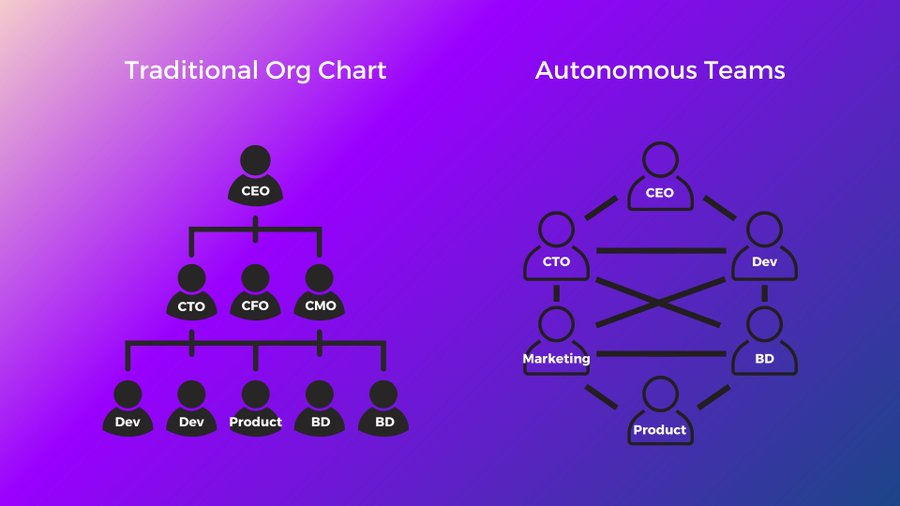Virtual Labs: Why Should You Care?
The Vision and Mission Behind the Company
José.Virtual | Dec 13, 2023
Virtual Labs is Streamlining Web3 UX Through ZK State Channels. At Virtual Labs, we believe that mainstream adoption can only be achieved by meeting the user where they are: with simple and intuitive products that offer more value than their existing ones.
Virtual Labs delivers this experience to games, DEXs, and users directly by overcoming the limits of the blockchain in terms of compute, latency, and friction through ZK State Channels (ZKSCs).

Glossary - What is Virtual Labs?
Virtual Labs is the creator of the Virtual Engine, a Zero Knowledge State Channel (ZKSC) that powers:
- Virtual Rollup - Self-Validated, Zero-Gas Transactions
- Virtual Wallet - Your Multichain Passport for Easy Transactions and Automatic Yield
- Virtual Bridge - Instant, Cross-Chain Access
The goal of Virtual Labs is to use this technology, ZKSC, to power applications like the Virtual Rollup, Virtual Wallet, and Virtual Bridge, to streamline Web3 UX and onboard the first billion users to crypto.
In traditional state channels, two users deposit funds onchain and exchange the rights to these locked funds peer-to-peer (P2P). If these users interact a lot, then all the subsequent transactions can be bundled into one state update, the current balances of each user, to be placed onchain. The contract then verifies the signatures and updates the balances based on the preexisting funds.
In ZK state channels, unlimited users are able to deposit funds and exchange the rights to these locked funds P2P, but with an unbounded playerbase accessing the benefits of zero-gas and zero-latency. ZK state channels also allow users to join the channel after it has already been opened - like a new player joining a lobby mid-game. Finally, incorporating zero knowledge elements like Plonky2 and Plonky3 signatures into state channels enables quick-to-verify cross-chain proofs. This means that users can deposit funds on different chains and still engage in the same P2P communication system.
Virtual Rollups Progress
In the past twelve months, Virtual Labs has gone from just an idea in my mind to a Binance and OP Crypto-backed startup hellbent on streamlining Web3 UX. In this same time, I’ve hired over a dozen people and built a high-agency, rapidly-moving team. Most importantly, we churned out several MVPs and finally our Virtual Rollups beta, which has been running on two dozen partner projects since October.
Real Utility for Real People
Virtual Labs is committed to the idea of supplying real value. This means we are here to stay, and why a token has not come yet. The Virtual Labs team plans to build until our parents and grandparents benefit from using decentralized blockchain technology without any friction or even realizing there is anything different.
Category-Defining Innovation in ZKSCs
Virtual Labs created blockchain’s first ZK state channel. While state channels have existed for some time, these previous versions were limited to 2 users, required predefined addresses, and were not multichain. We are excited to see so many others follow us into this world and begin to build other ZKSCs.
Virtual Labs Decentralized Team Culture
Virtual Labs team members are doxxed, ensuring our legitimacy and dedication to the cause. Internally, Virtual Labs does things a little differently than other companies. Everyone is encouraged to think like an entrepreneur with a horizontal org chart, I deem: “Autonomous Teams.” While involving multiple team members in the decision-making process, it helps everyone exit their bubbles, improving in their own workflow and contributing to shape the larger vision.

This is accomplished by selecting not just for skill, but for agency. This means hiring slow and frontloading friction to new hires. The weak will self-select out, and you will have a mandate to govern with the dedicated and determined remaining.
I explain that this is not common because:
- CEOs have fragile egos, and don't want to give up control
- Founders don't want to encourage transparency, which is a morale boost in good times and a dampener in bad times
- Founders get caught up in growth and flexing how big their team number is, burning their runway and creating a house of cards made up of inefficient team members and unneeded middle managers. Small teams will outpace teams with rot, per capita and at large. Hire slow.
Keep reading at the full X Thread here.
This is a different way of thinking. And I believe you should bet on us because we think differently. Because we think better.
Thank you for reading! To catch some big updates coming soon, subscribe below:
.webp)
